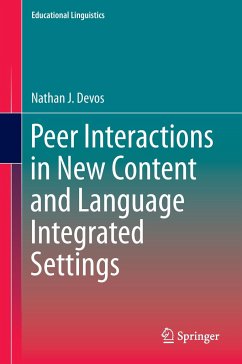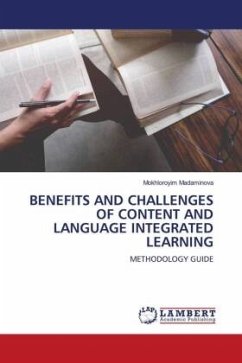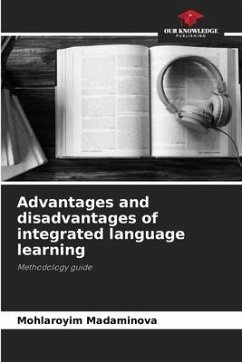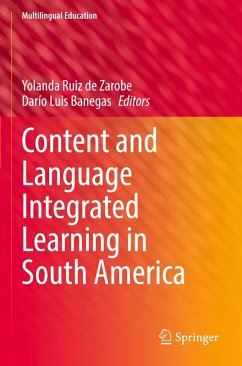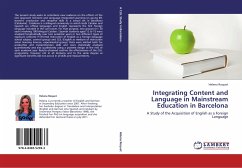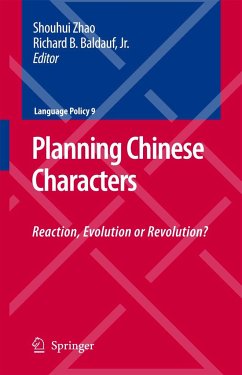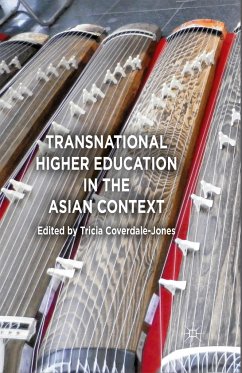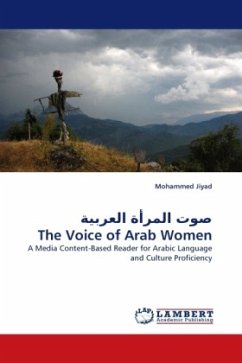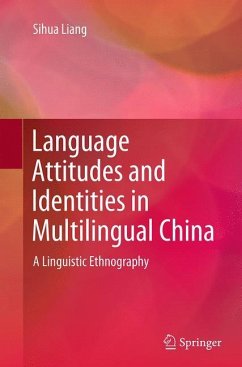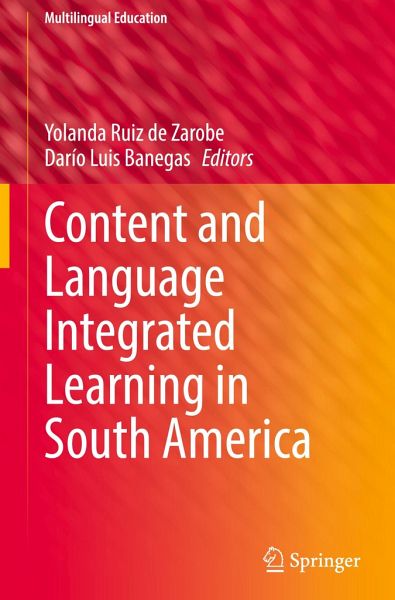
Content and Language Integrated Learning in South America

PAYBACK Punkte
57 °P sammeln!
CLIL is a pedagogical approach which has gained traction in different educational and geographical contexts as a key tool in language learning and teaching. After more than 25 years of implementation, we can assert that we have learned a great deal about what CLIL entails. However, it is also true that we still need to contextualise the approach in order to clearly delimit what CLIL has to offer in each setting. This is precisely the aim of this book. This volume focuses on CLIL in South American contexts. It identifies, clarifies and offers insights into issues related to its characterisation...
CLIL is a pedagogical approach which has gained traction in different educational and geographical contexts as a key tool in language learning and teaching. After more than 25 years of implementation, we can assert that we have learned a great deal about what CLIL entails. However, it is also true that we still need to contextualise the approach in order to clearly delimit what CLIL has to offer in each setting. This is precisely the aim of this book. This volume focuses on CLIL in South American contexts. It identifies, clarifies and offers insights into issues related to its characterisation and implementation, as well as teacher education. With contributions from a prestigious array of scholars and practitioners from various parts of South America, it also highlights some of the achievements and challenges in the process of implementing CLIL in the region. Against the backdrop of South American contexts, this book aims to provide a useful and innovative lens through which policy makers, researchers and teachers will find significant implications for the development of CLIL.





